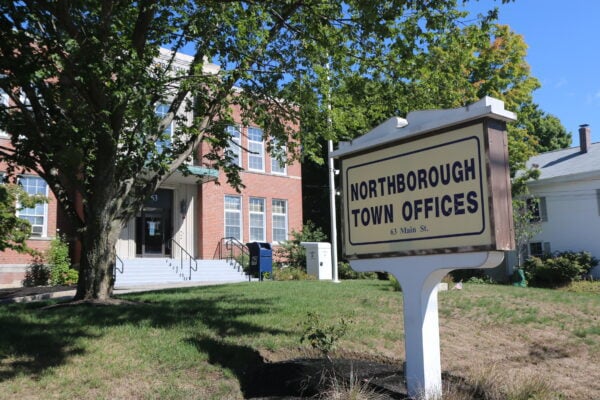
NORTHBOROUGH – Town officials are projecting that the average single-family residence may see its tax bill increase by $380 for fiscal year 2023.
That results in an average bill of $8,575, which is an increase over $8,195 in fiscal year 2022.
During the Nov. 21 meeting, the Board of Selectmen unanimously voted to implement a single tax rate of $14.79 while rejecting a small commercial and residential exemption.
At that time, town leaders presented their projections for the tax impact.
During the financial trend monitoring report last December to the selectmen, School Committee and appropriations and financial planning committees, town officials projected that the average single-family home in Northborough may face a tax increase of about $565 in fiscal year 2023.
“Which is the most substantial [increase] in the last 10 plus years,” said Town Administrator John Coderre.
When the final budget was sent to Town Meeting, town staff estimated the tax impact would be about $513.
“I’m very happy to say that sitting here today that we always show you hopefully a worst-case scenario, but a few things worked out in our favor,” Coderre said.
Among them, Coderre said Northborough saw “good, healthy” new growth — which is estimated at $54.3 million — along with rising commercial and industrial property values.
“For the last couple of years what we saw was a very hot real estate market and a suppressed commercial industrial,” Coderre said. “Businesses were closed. Retail shops were closed. So, we saw a shifting of the tax burden to the residential as those values escalated.”
Now, Coderre said the town saw residential, commercial and industrial property values all increase. In total, Northborough’s property values increased from $3.38 to $3.89 billion. Specifically, residential values increased by 16%, industrial increase by 15% and commercial increase by 10%.
“Because of that, you didn’t see as big of a shift over onto the residential,” Coderre said.
Additionally, the town received an increase in its state aid, and Algonquin Regional High School received additional aid that resulted in a decrease to Northborough’s assessment, resulting in an average tax bill of $380.
Single tax rate
During the meeting, Assessors Paul Cibelli and Christopher Reidy presented the tax rate options — including adopting a split tax rate — and small commercial and residential exemptions.
A split tax rate would have shifted the tax burden from residential to commercial, industrial and personal property classes. For example, a five percent shift would lower the residential property rate to $14.53 and result in a savings of $151 for the average single-family taxpayer. It would in turn increase the tax rate for commercial and industrial properties to $15.53, leading to an increase of $1,320 increase in the average commercial tax bill and $3,701 in the average industrial tax bill.
“Any shift amount does not raise any additional revenues,” Cibelli said.
However, the selectmen did not voice their support for adopting a split tax rate.
Selectmen Jason Perreault said a single tax rate was the “fairest approach that we have.”
“As we’ve noted, the impact to shift a certain amount of money to produce a certain amount of savings on the residential side has a disproportionate effect on the commercial industrial side and the increase that occurs over there,” he said.
Chair Mitch Cohen said while the split tax rate works for some communities, he added, “I don’t think it would work well for Northborough.”
Cohen said the town needed new growth in regards to small businesses.
“There would certainly be ill-effects of that both for the small businesses that would own the property that they would be in as well as the commercial property owners that lease out space to small business owners along our Main Street and vicinity,” Cohen said.















